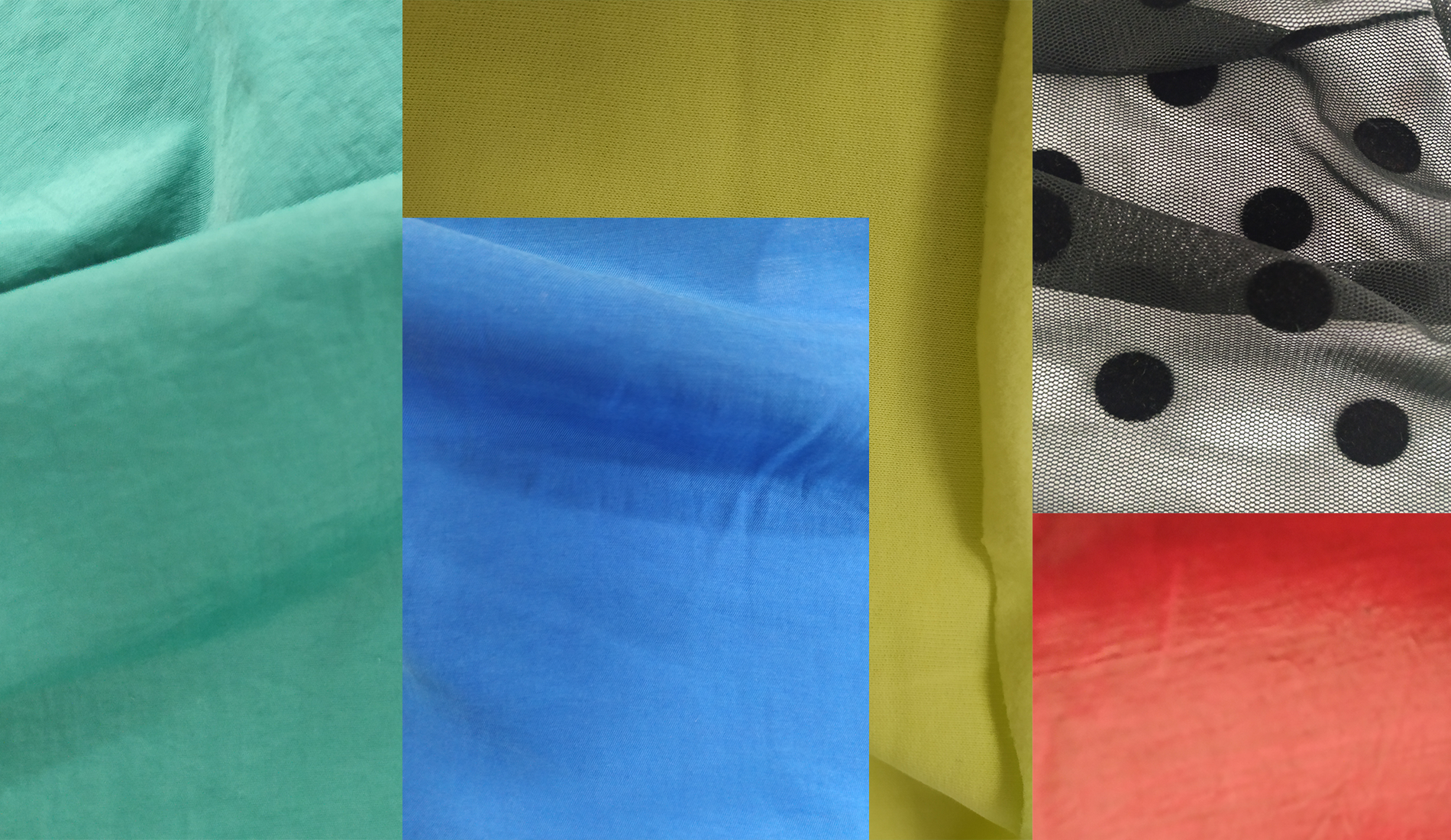
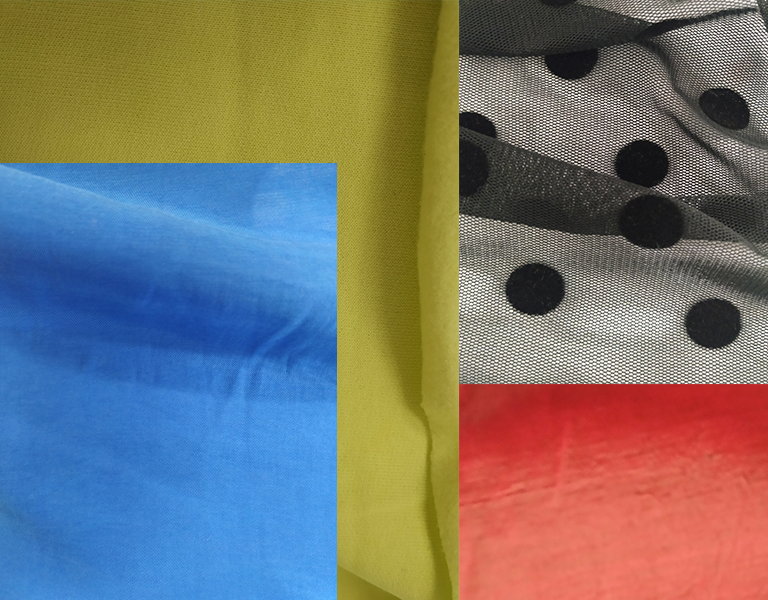
Innovative
Future Fabrics Expo 2020 Trends
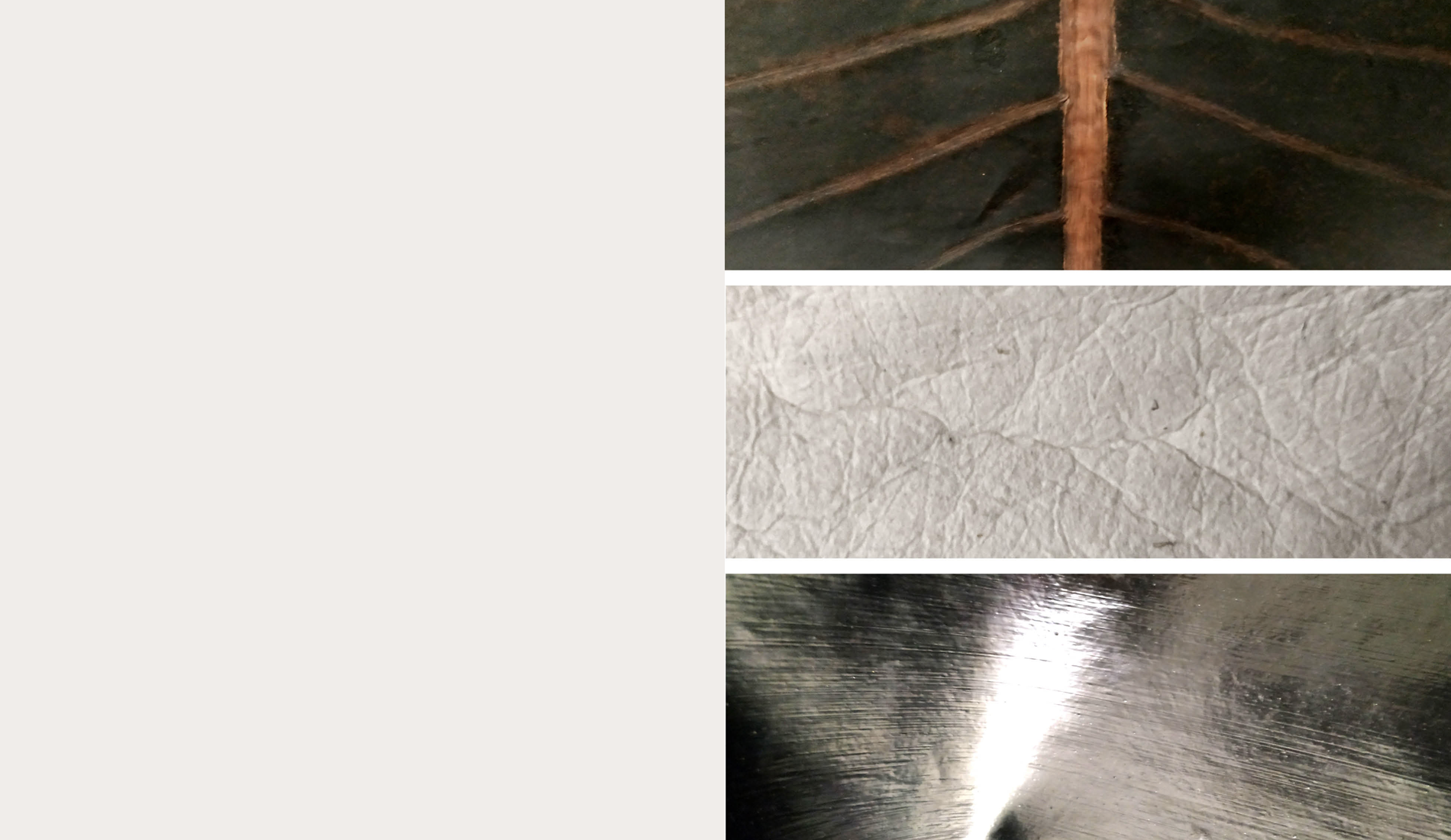
Plant-based leathers
One of the hottest fabric trends of the moment are plant-based leathers. Cactus is one of the newest on the market but there are others on offer too.
Pinatex by Ananas Anam still leads the way in plant-based leather. Using pineapple leaves - a bi-product of pineapple farming.
Check out BeLeaf by Brazilian producer Nova Kaeru made from Elephant Ear leaves and Couro Vegetal by Barktex, a vulcanised rubber alternative with a cotton based base, which aims to improve the livelihood of Amazonian rubber-tapping communities.
See below for details about each fabric
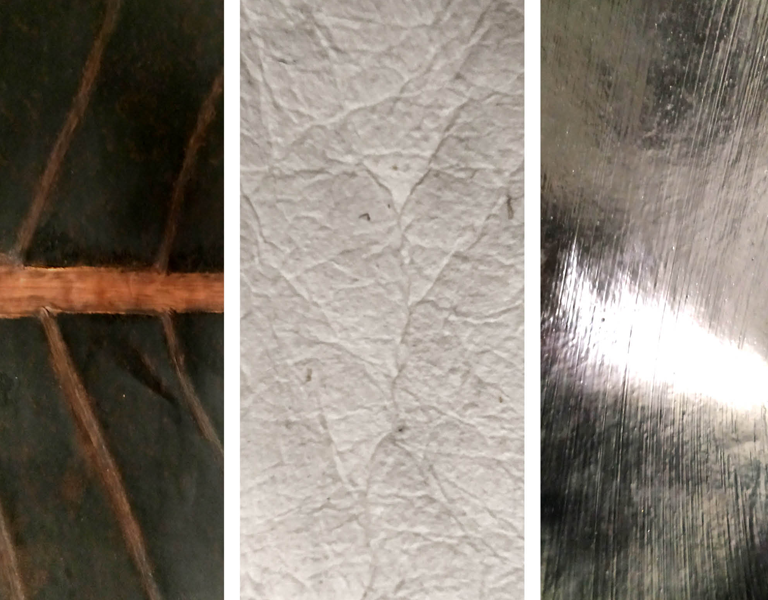
Plant-based leathers
One of the hottest fabric trends of the moment are plant-based leathers. Cactus is one of the newest on the market but there are others on offer too.
Pinatex by Ananas Anam still leads the way in plant-based leather. Using pineapple leaves - a bi-product of pineapple farming.
Check out BeLeaf by Brazilian producer Nova Kaeru made from Elephant Ear leaves and Couro Vegetal by Barktex, a vulcanised rubber alternative with a cotton based base, which aims to improve the livelihood of Amazonian rubber-tapping communities.
See below for details about each fabric
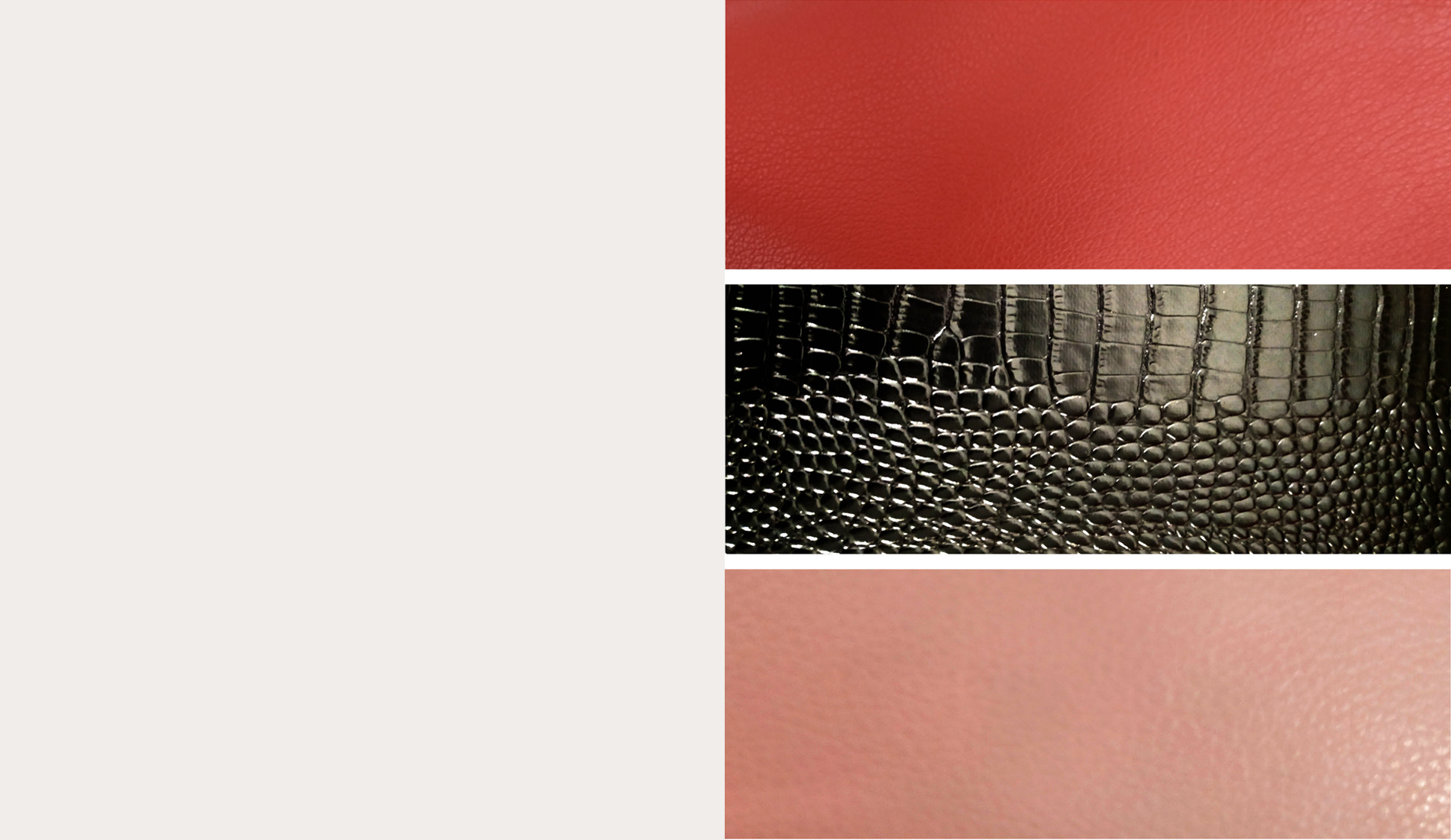
Recycled leather
Recycled leather using waste materials offers an alternative to traditional hides. It is strong and durable and has the texture of traditional leather.
Recyc leather based in Hong Hong takes leather scraps sourced from garden gloves factories which are shredded and then processed again into a new material which can be used for footwear and fashion leather goods.
All the pre-consumer waste used is traceable and verified by Textile Exchange Recycled Reclaim standard and adheres to REACH standards.
See below for details about each fabric
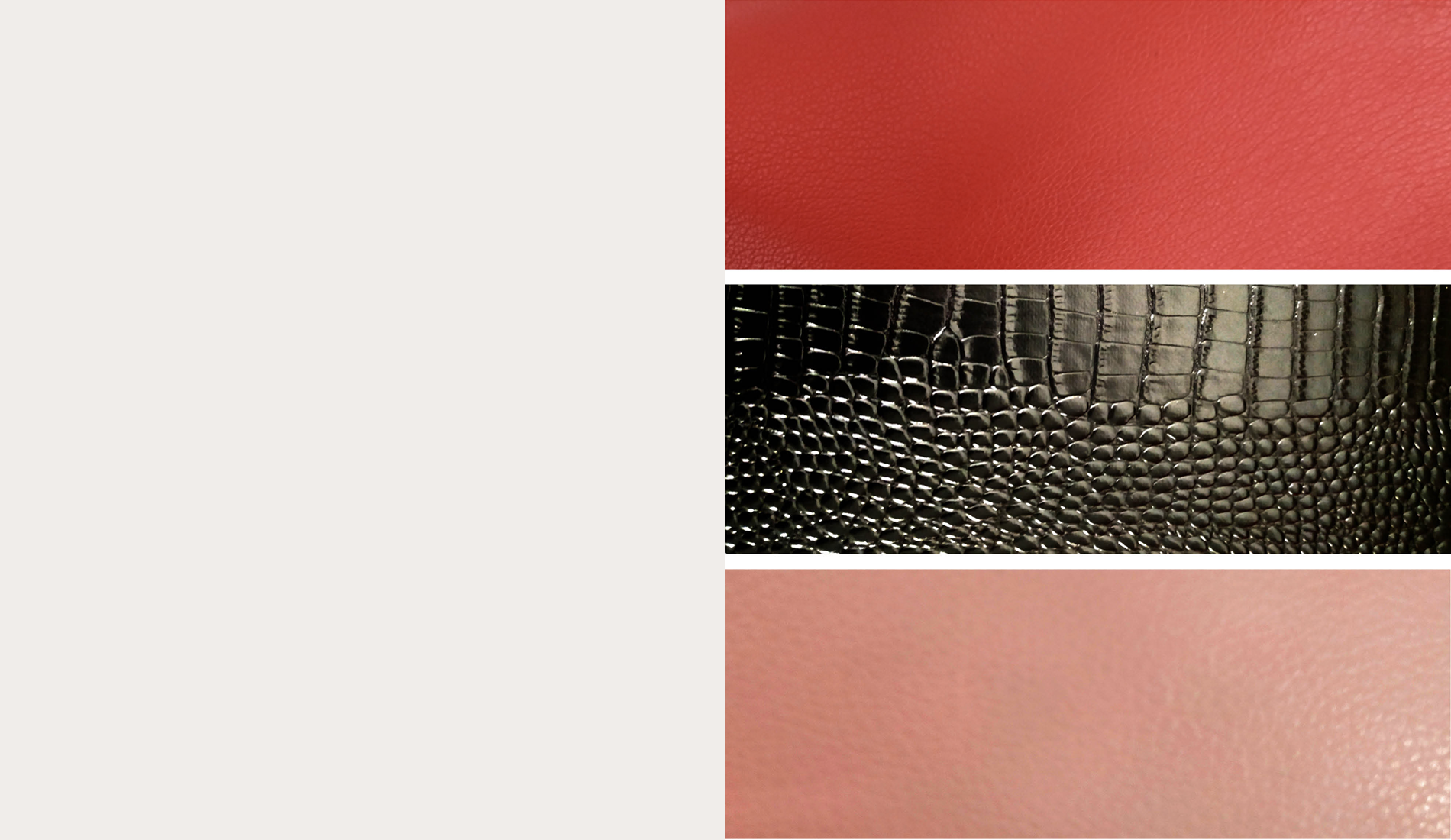
Recycled leather
Recycled leather using waste materials offers an alternative to traditional hides. It is strong and durable and has the texture of traditional leather.
Recyc leather based in Hong Hong takes leather scraps sourced from garden gloves factories which are shredded and then processed again into a new material which can be used for footwear and fashion leather goods.
All the pre-consumer waste used is traceable and verified by Textile Exchange Recycled Reclaim standard and adheres to REACH standards.
See below for details about each fabric
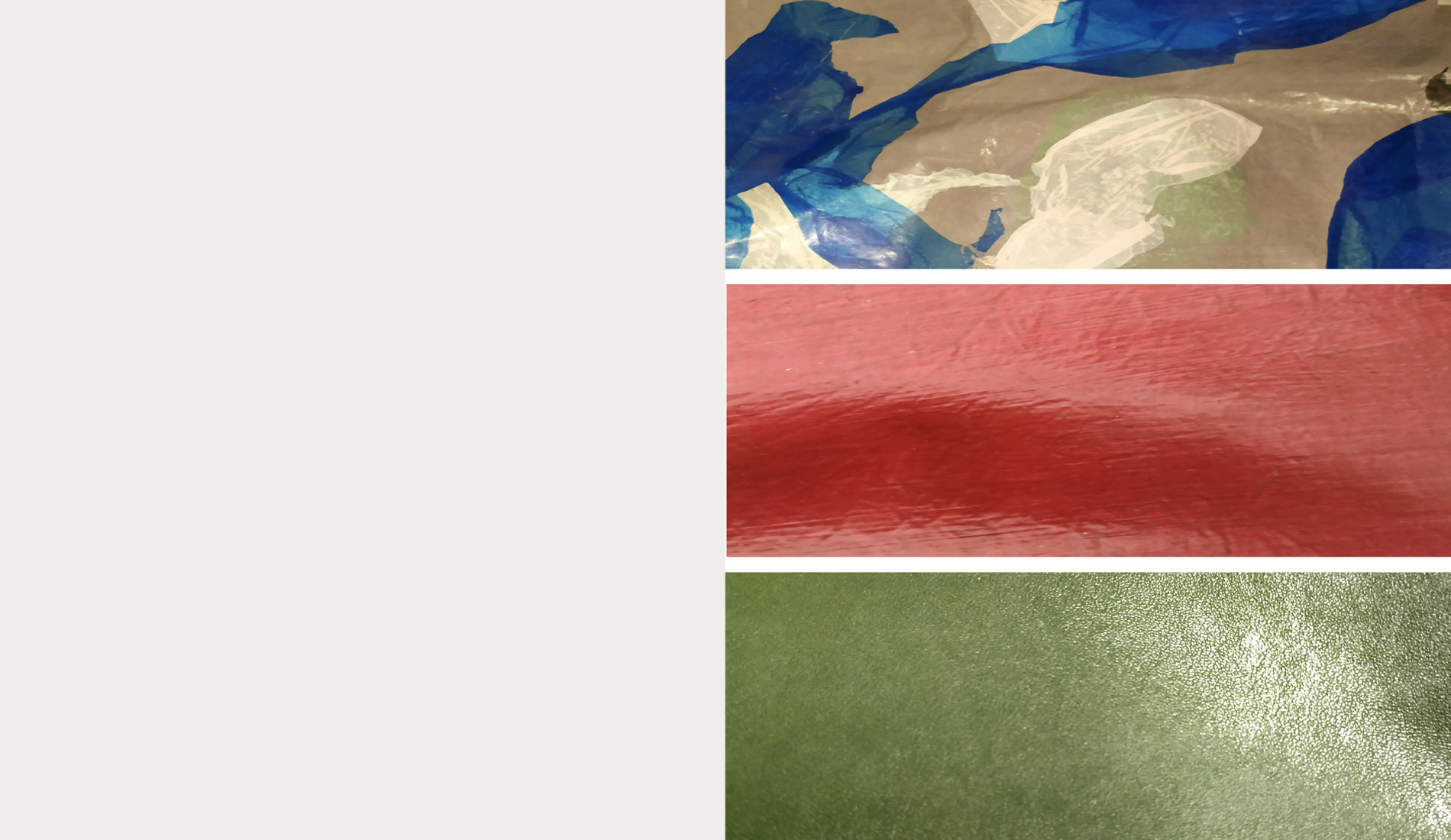
Plant-based leather & PVC alternatives
Some of the newest fabrics on offer are coming from South America with Amazonian materials from Brazil and Cactus leather from Mexico, offering alternatives to leather and PVC.
Amadeu - Amazonian Materials & Design United works with local communities in the production of its wild rubber material.
Cactus leather produced by Adriano Di Marti is organically grown with rainwater and no herbicides or pesticides.
See below for details about each fabric
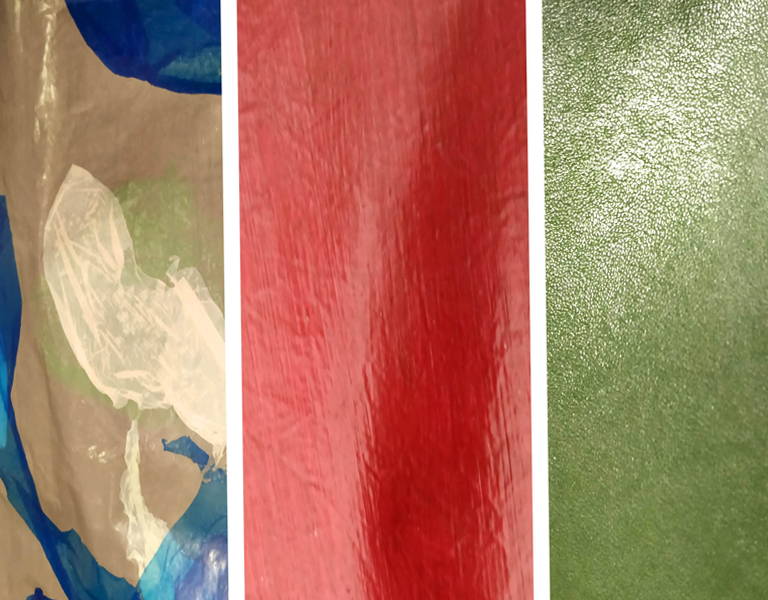
Plant-based leather & PVC alternatives
Some of the newest fabrics on offer are coming from South America with Amazonian materials from Brazil and Cactus leather from Mexico, offering alternatives to leather and PVC.
Amadeu - Amazonian Materials & Design United works with local communities in the production of its wild rubber material.
Cactus leather produced by Adriano Di Marti is organically grown with rainwater and no herbicides or pesticides.
See below for details about each fabric
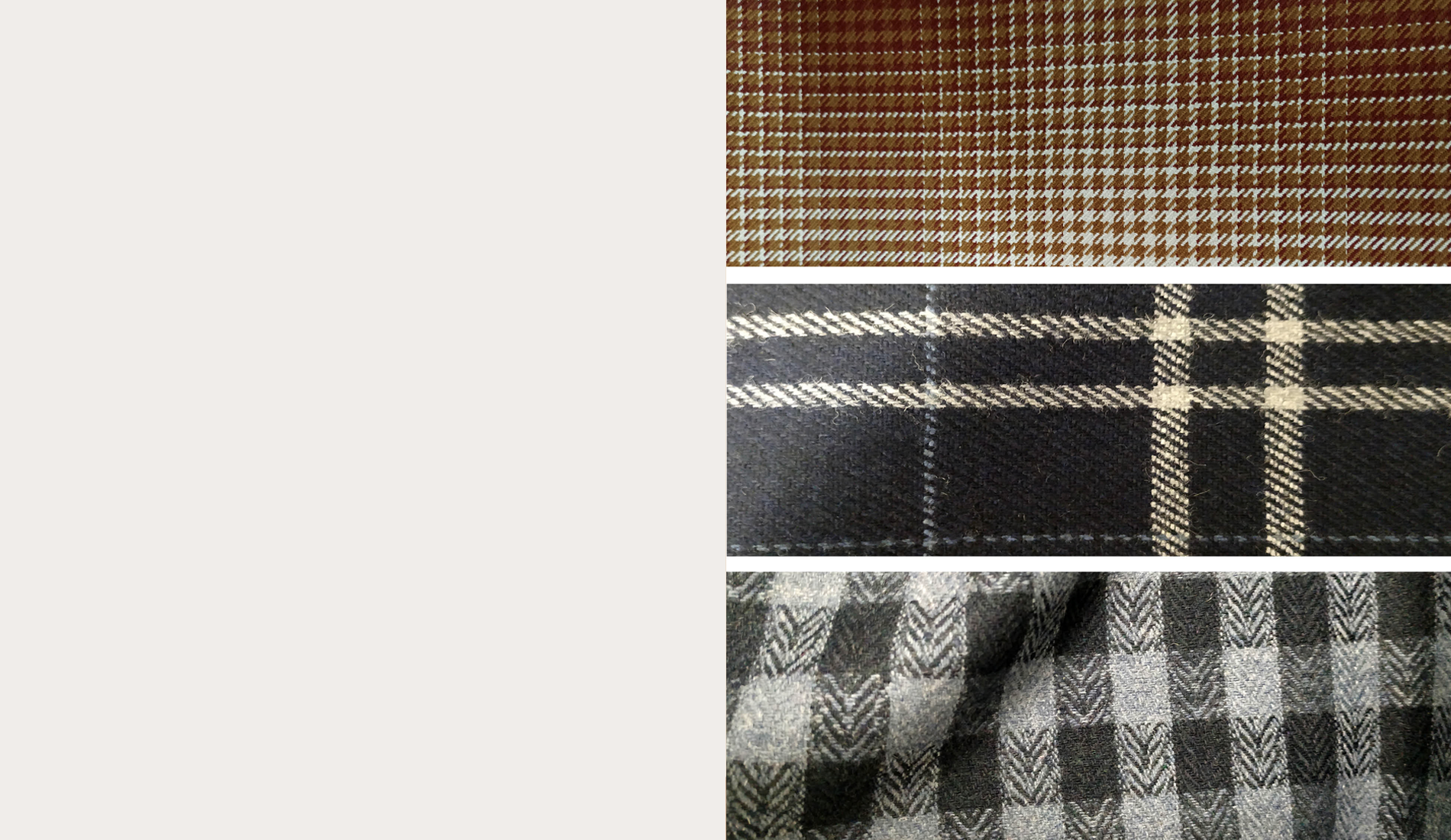
Recycled & certified wools
Recycled and certified wools offer an alternative for brands looking for more sustainable wool options.
Italian mill, Fratelli Piacenza, specialises in cashmere and other animal fibres and offers a selection of fabrics made from 100% RWS traceable and certified wool. See Global Wool Production and Sustainable Standards for more on wool standards.
Comistra blends pre- and post-consumer waste into new yarns and fabrics in its production facility in Montemurlo, Italy.
See below for details about each fabric
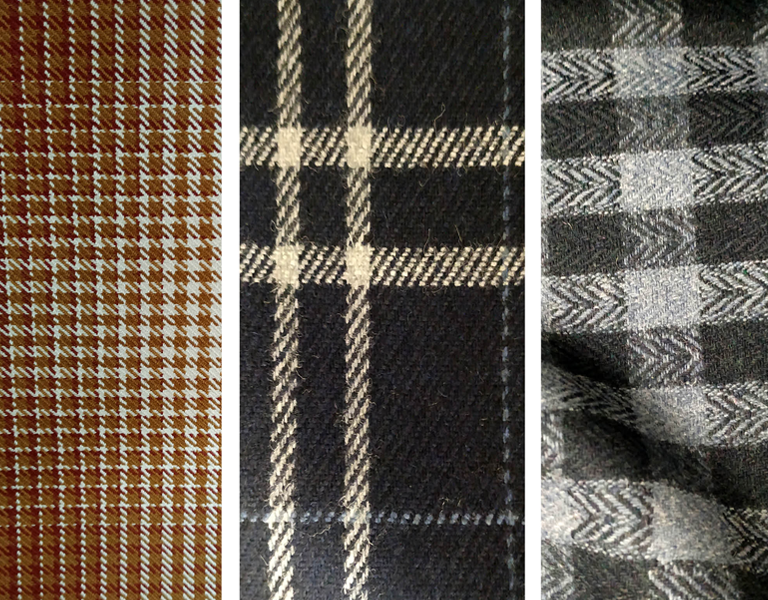
Recycled & certified wools
Recycled and certified wools offer an alternative for brands looking for more sustainable wool options.
Italian mill, Fratelli Piacenza, specialises in cashmere and other animal fibres and offers a selection of fabrics made from 100% RWS traceable and certified wool. See Global Wool Production and Sustainable Standards for more on wool standards.
Comistra blends pre- and post-consumer waste into new yarns and fabrics in its production facility in Montemurlo, Italy.
See below for details about each fabric
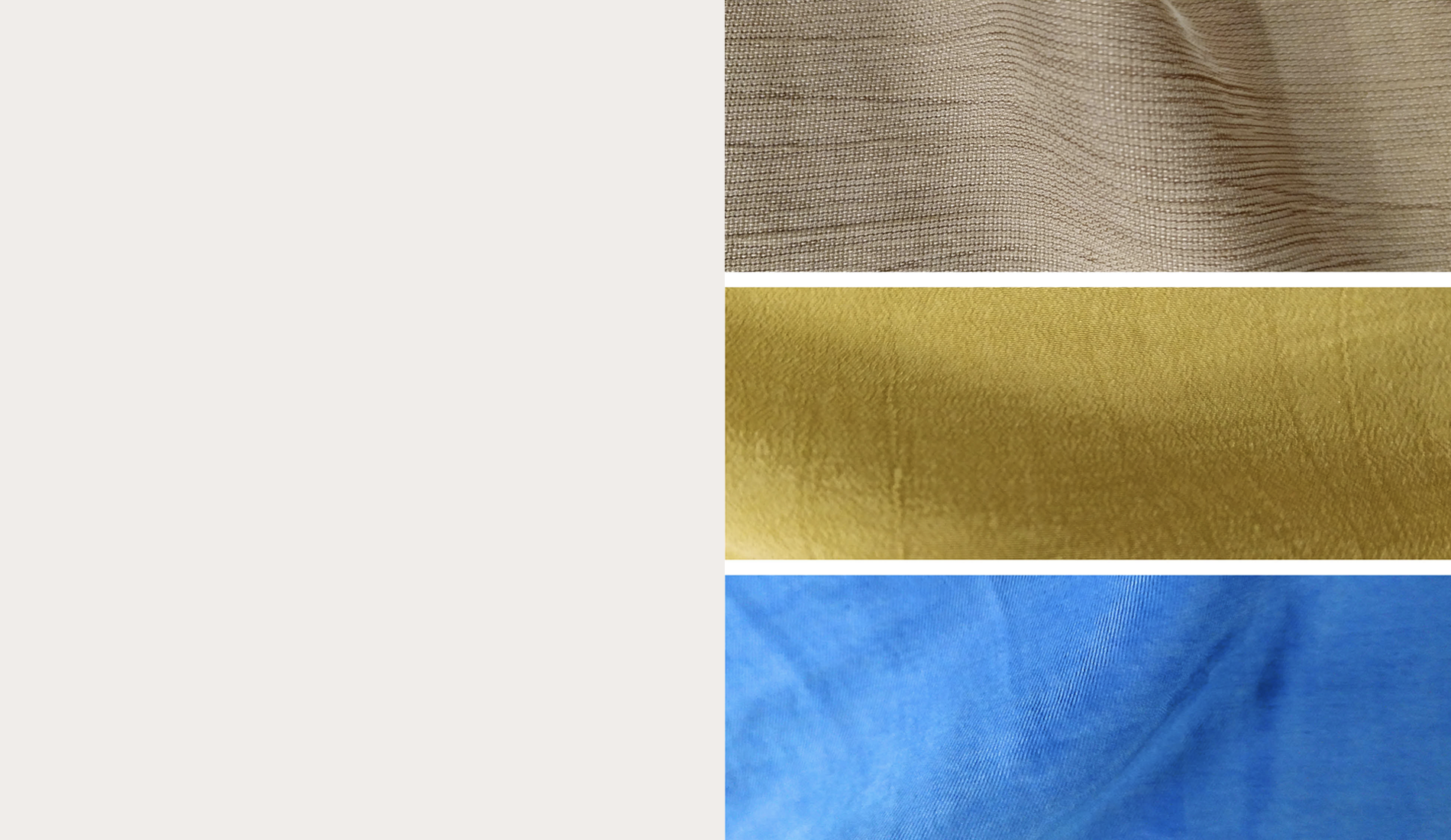
Sustainable cellulosics
Tencel continues to lead the way in sustainable cellulosic viscose alternatives.
Tencel™ Lyocell is made from sustainable sources including eucalyptus grown on marginal land unsuitable for food crops.
Chinese mill Mozartex specialises in Tencel woven fabrics and can produce fabrics using certified organic and recycled yarns. Tencel™ Lyocell fibres are produced in a closed loop production process and are processed by Mozarterx in facilities in Jiangsu and Wuxi, China.
Tencel Luxe offers increased smoothness and drape.
See below for details about each fabric
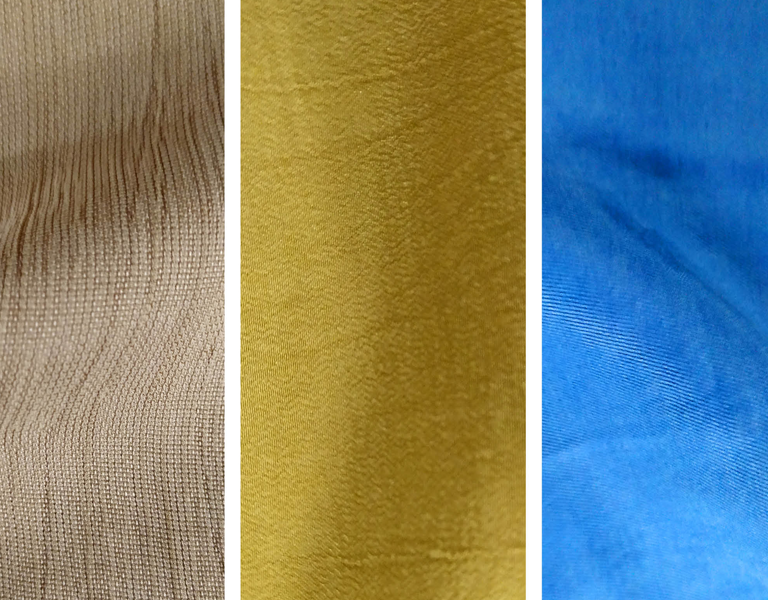
Sustainable cellulosics
Tencel continues to lead the way in sustainable cellulosic viscose alternatives.
Tencel™ Lyocell is made from sustainable sources including eucalyptus grown on marginal land unsuitable for food crops.
Chinese mill Mozartex specialises in Tencel woven fabrics and can produce fabrics using certified organic and recycled yarns. Tencel™ Lyocell fibres are produced in a closed loop production process and are processed by Mozarterx in facilities in Jiangsu and Wuxi, China.
Tencel Luxe offers increased smoothness and drape.
See below for details about each fabric
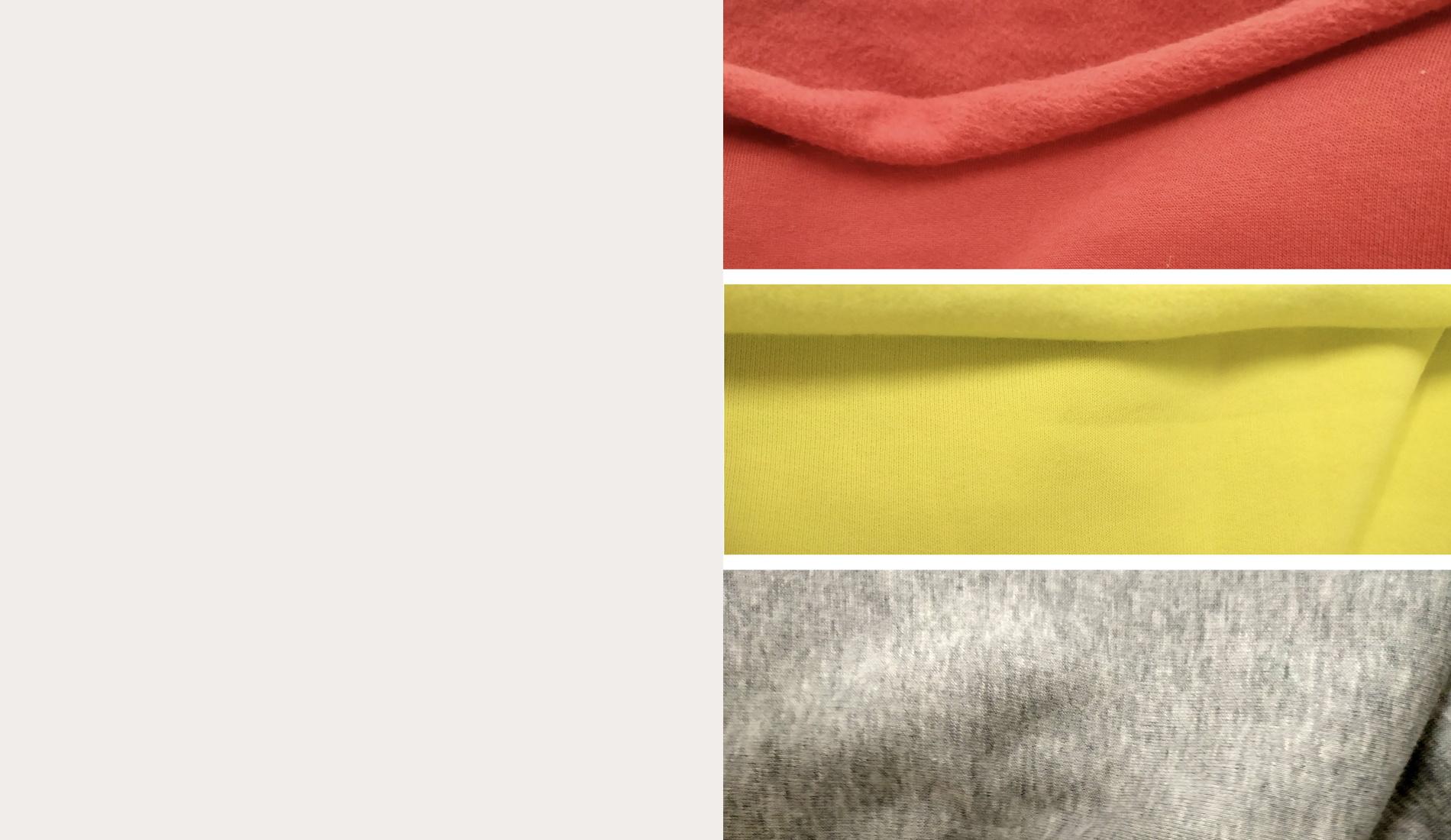
Organic cotton sweatshirtings
Organic cotton jersey while a core staple was nevertheless a key display at Future Fashion Expo with beautifully soft sweatshirtings on offer.
Organic Textile company is a British stock house that offers fleece sweatshirtings, double cloth pointelle and a wide range of jerseys. Sekem is an Egyptian producer that only uses certified organic cotton.
See below for details about each fabric
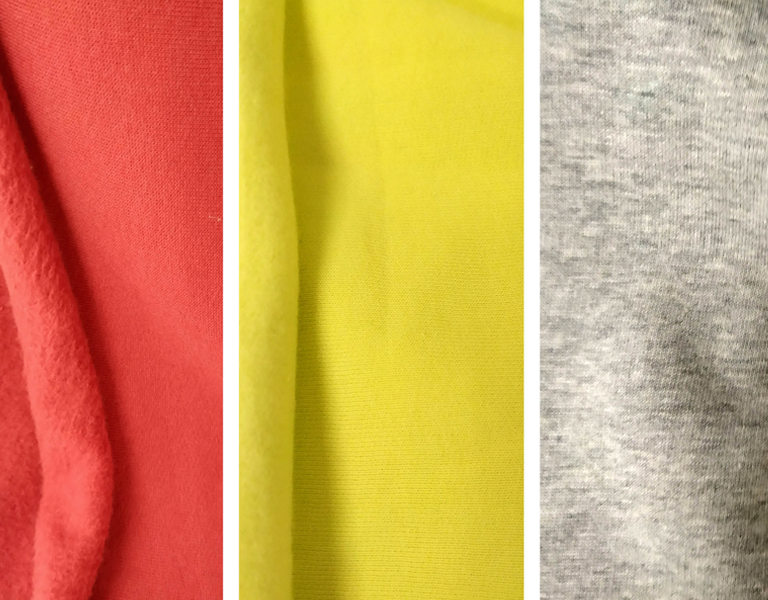
Organic cotton sweatshirtings
Organic cotton jersey while a core staple was nevertheless a key display at Future Fashion Expo with beautifully soft sweatshirtings on offer.
Organic Textile company is a British stock house that offers fleece sweatshirtings, double cloth pointelle and a wide range of jerseys. Sekem is an Egyptian producer that only uses certified organic cotton.
See below for details about each fabric
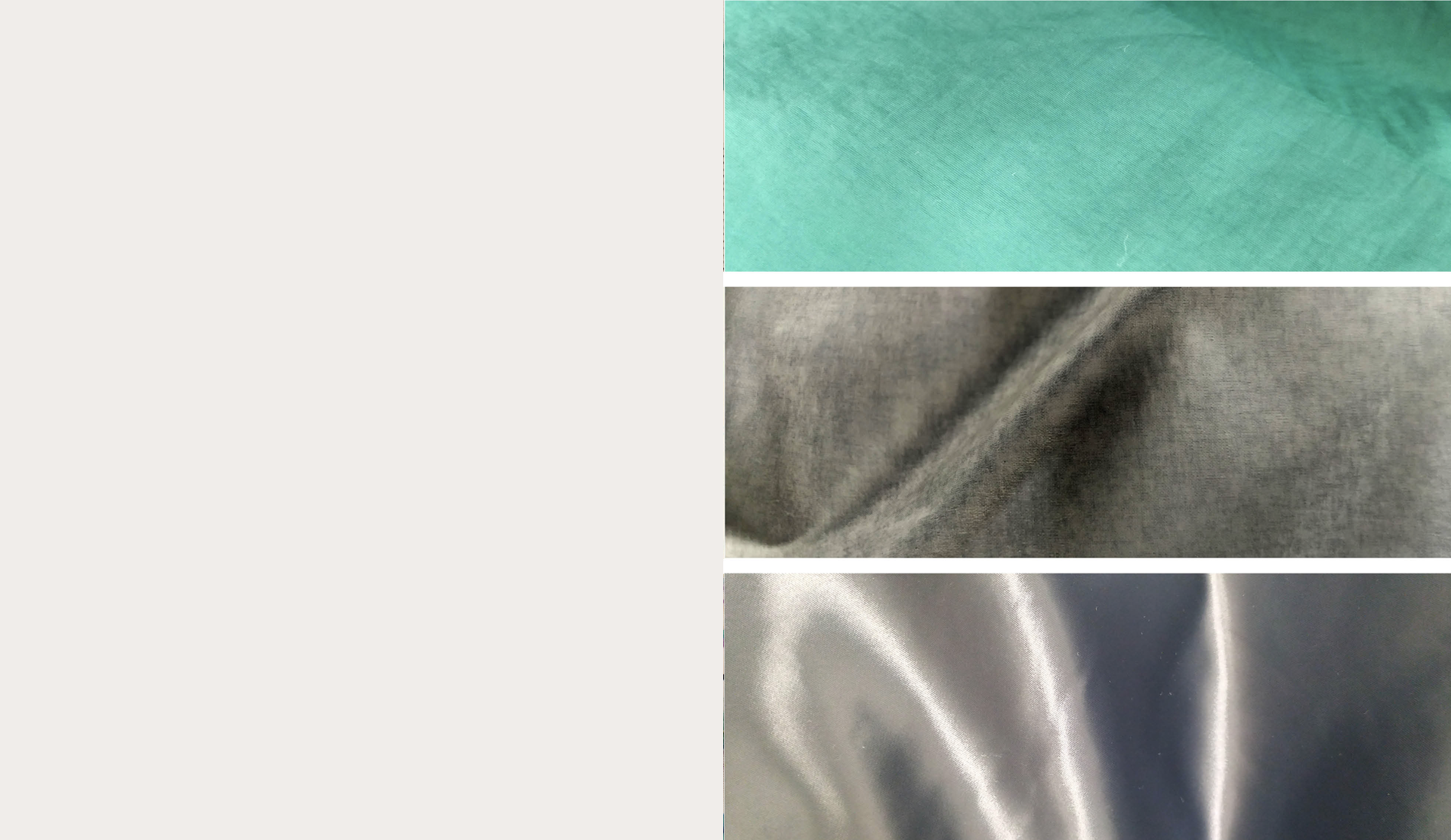
Recycled nylon performance fabrics
Recycled nylon and polyamide wovens came in beautiful drape handles with subtle sheen to lustrous finishes.
Recyctex, based in China, is a mill that specialises in recycled fibres made from abandoned fishing nets, discarded plastic bottles, clothes and textile waste, offering sports and fashion fabrics.
South Korean mill GB Global Inc offers a range of performance fabrics made from certified recycled fibres.
See below for details about each fabric
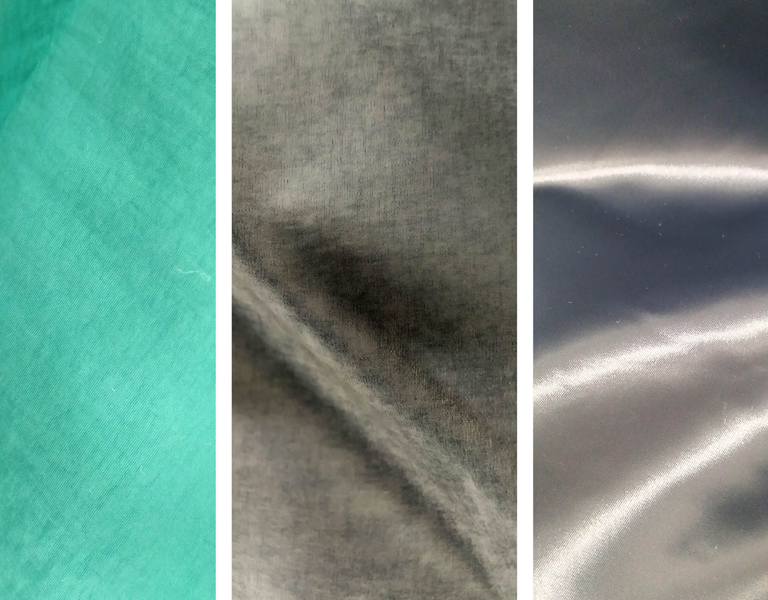
Recycled nylon performance fabrics
Recycled nylon and polyamide wovens came in beautiful drape handles with subtle sheen to lustrous finishes.
Recyctex, based in China, is a mill that specialises in recycled fibres made from abandoned fishing nets, discarded plastic bottles, clothes and textile waste, offering sports and fashion fabrics.
South Korean mill GB Global Inc offers a range of performance fabrics made from certified recycled fibres.
See below for details about each fabric
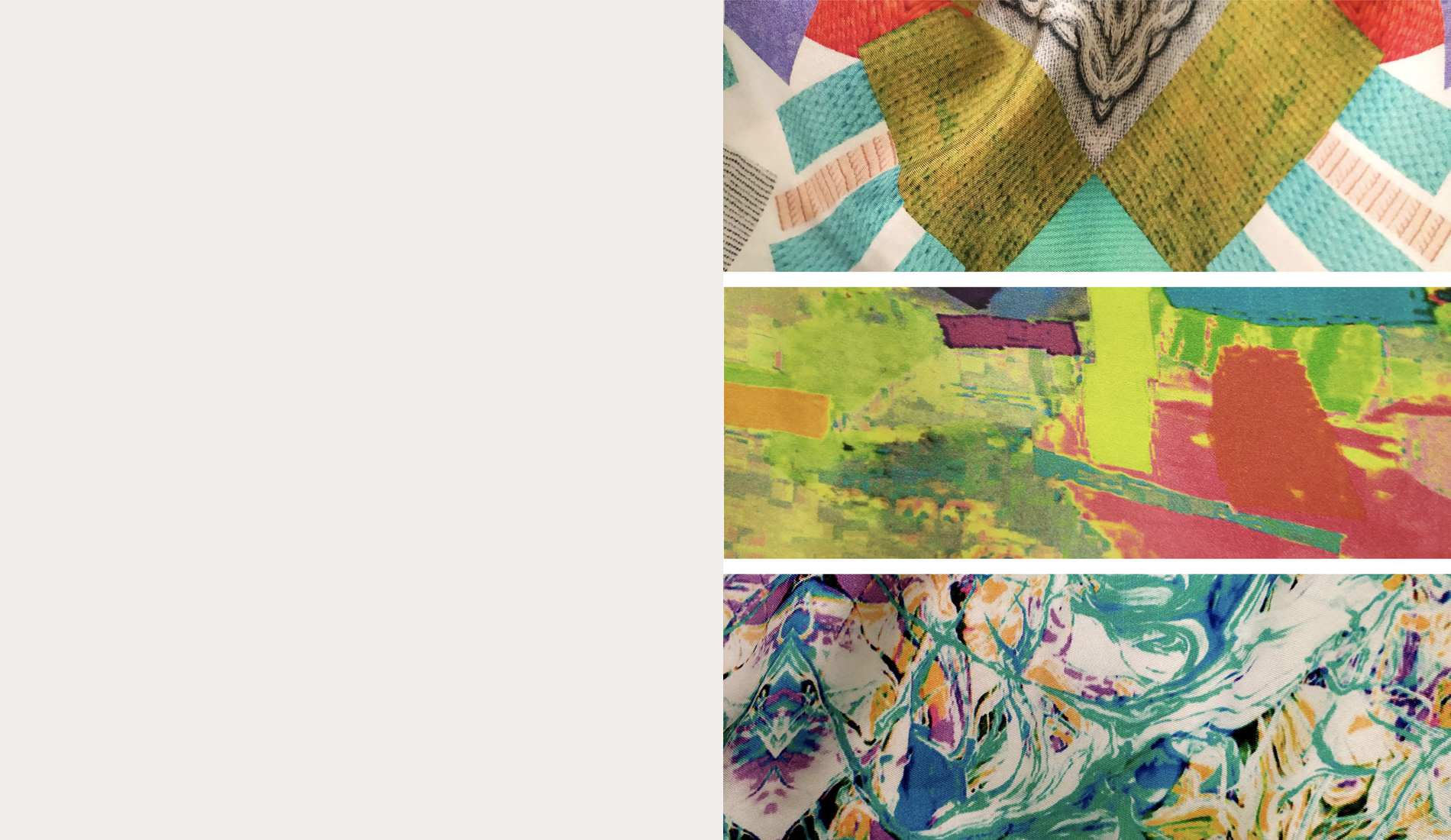
Printed organic silks
Vibrant fluro printed lightweight silks came with a soft drape and lustre.
Indo-German enterprise Cocccon is a rural co-operative with a community production model allowing silk farmers, spinners and weavers to work from their villages. Their entire production process is GOTS certified. No pesticides, fungicides or herbicides are used in the cultivation of the mulberry trees and the sericulture process is cruelty free (the moths are allowed to hatch naturally from the cocoons before the cocoons are processed).
See below for details about each fabric
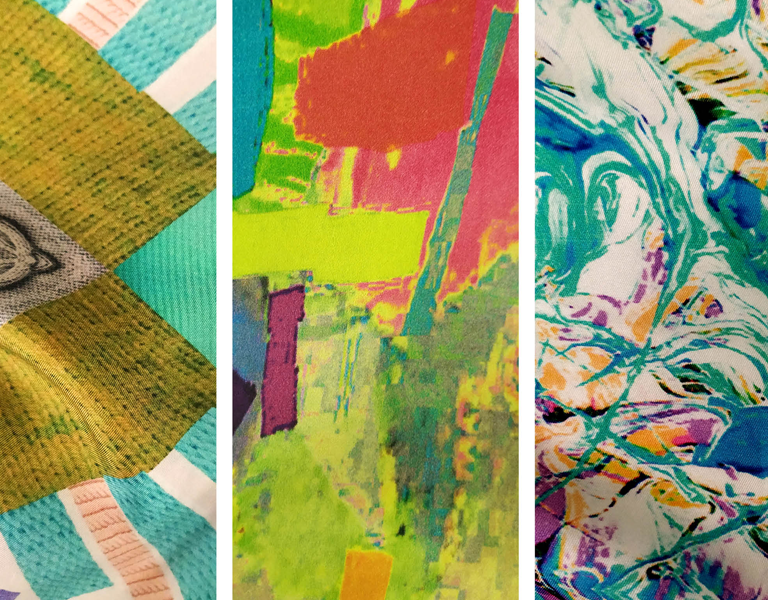
Printed organic silks
Vibrant fluro printed lightweight silks came with a soft drape and lustre.
Indo-German enterprise Cocccon is a rural co-operative with a community production model allowing silk farmers, spinners and weavers to work from their villages. Their entire production process is GOTS certified. No pesticides, fungicides or herbicides are used in the cultivation of the mulberry trees and the sericulture process is cruelty free (the moths are allowed to hatch naturally from the cocoons before the cocoons are processed).
See below for details about each fabric
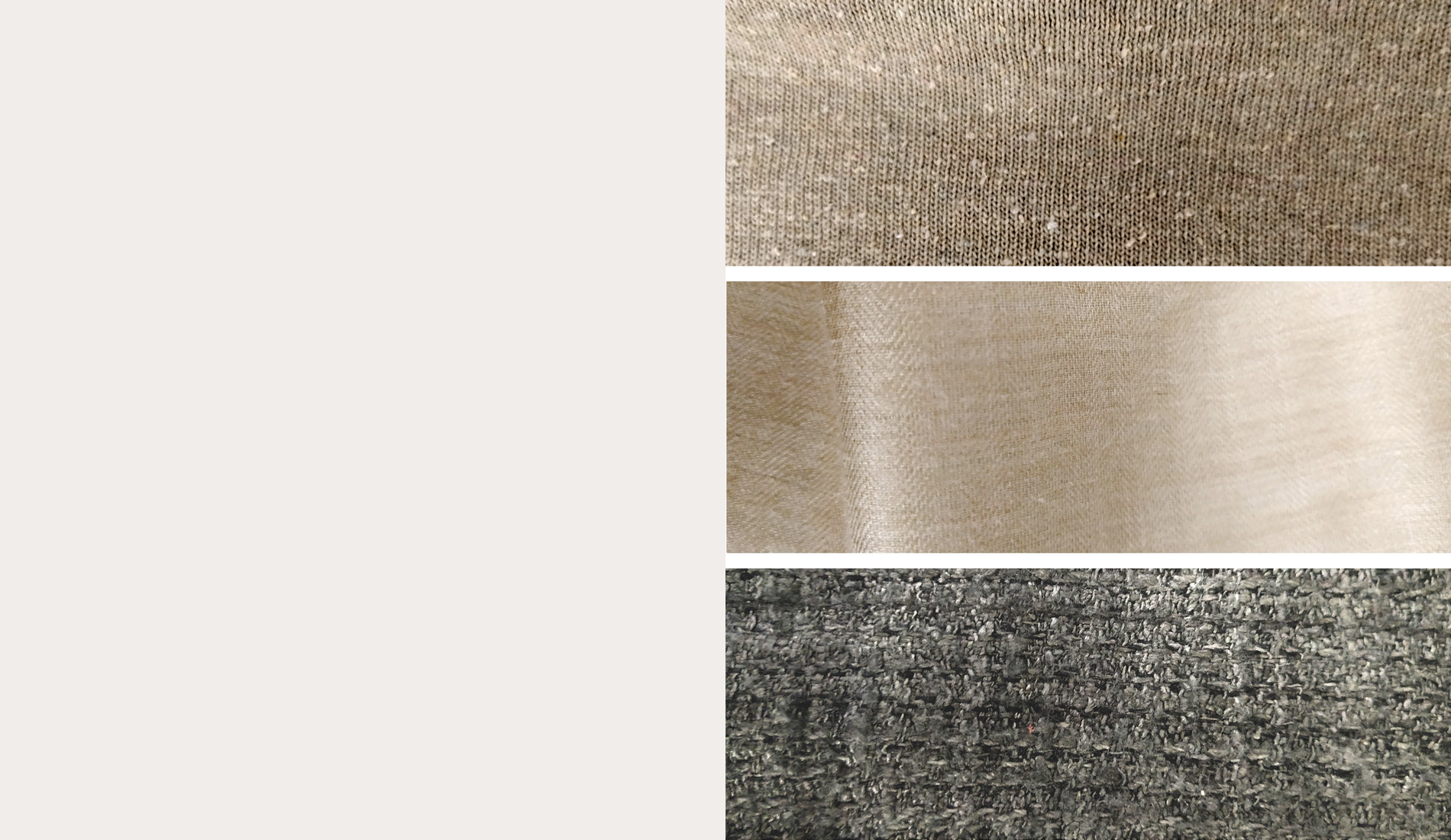
Recycled, Peace and organic silks
There were a large range of sustainable silk options to choose from including recycled, cruelty-free and organic options.
Hong Kong producer Bombyx Ltd showed a raw coloured silk jersey made from mechanically recycled pre-consumer silk waste from their own manufacturing.
Seidentraum is a stock house offering both organic and Peace silks in India in a wide variety of weights, textures and colours. And Indo-Germany co-operative Cocccon also produces a range of cruelty-free and GOTS certified organic silks.
See below for details about each fabric
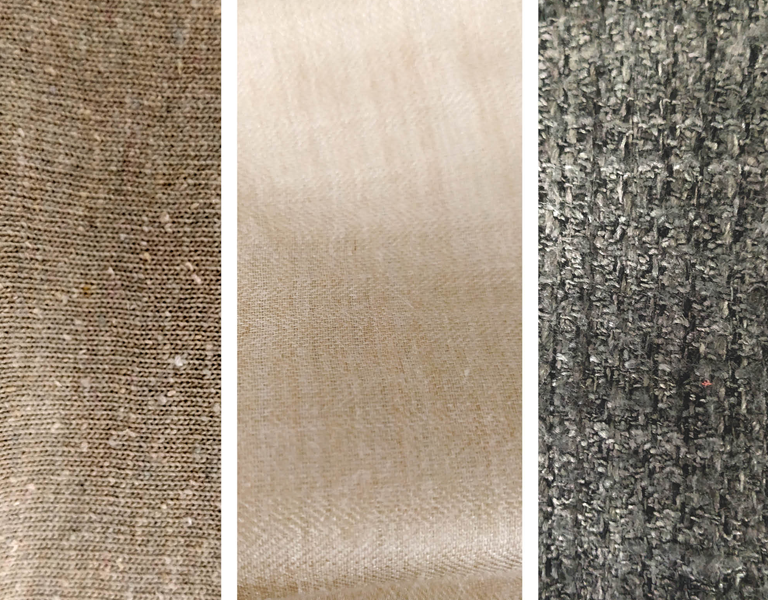
Recycled, Peace and organic silks
There were a large range of sustainable silk options to choose from including recycled, cruelty-free and organic options.
Hong Kong producer Bombyx Ltd showed a raw coloured silk jersey made from mechanically recycled pre-consumer silk waste from their own manufacturing.
Seidentraum is a stock house offering both organic and Peace silks in India in a wide variety of weights, textures and colours. And Indo-Germany co-operative Cocccon also produces a range of cruelty-free and GOTS certified organic silks.
See below for details about each fabric
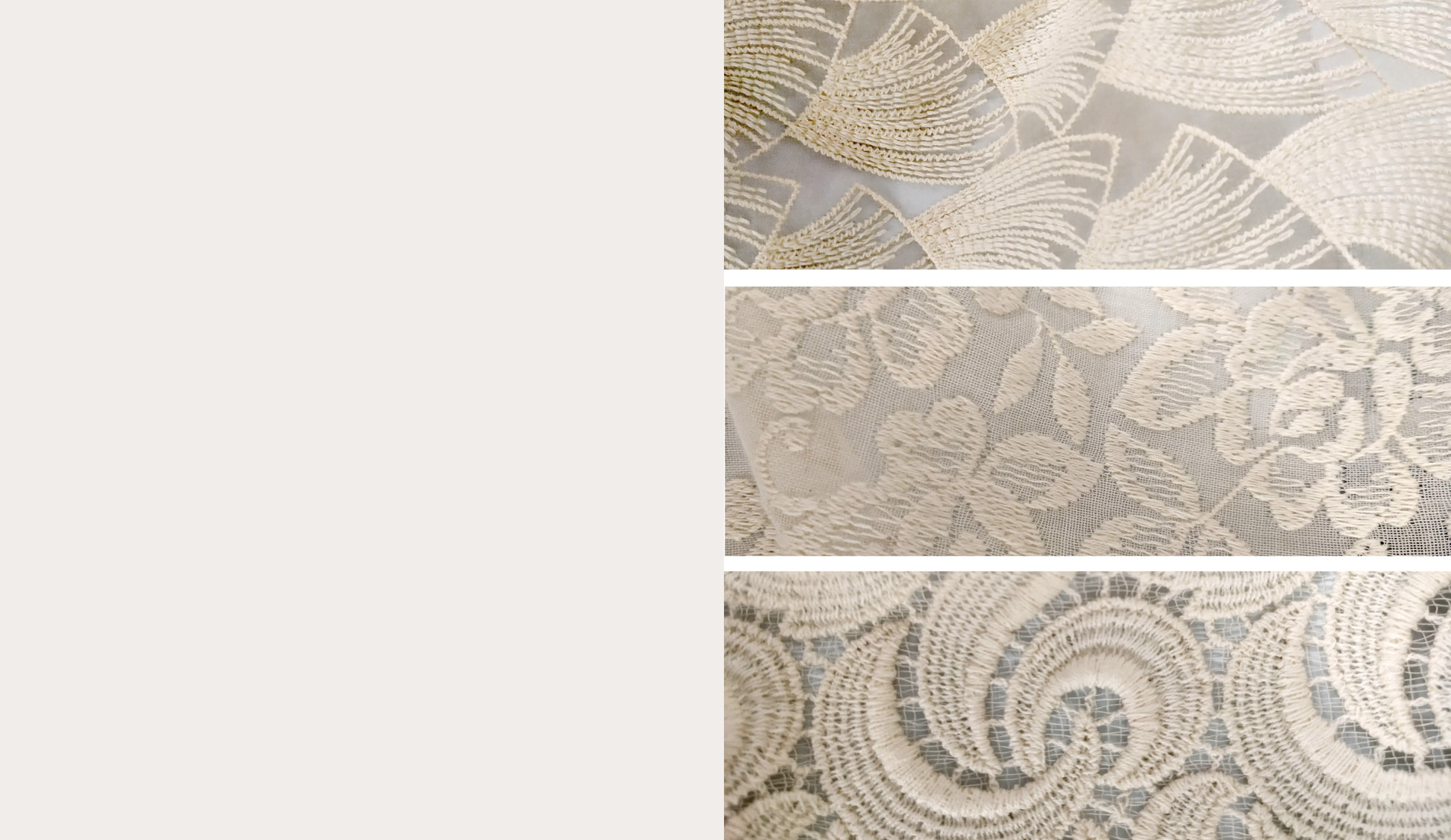
Organic cotton embroidery
Organic cotton embroidery and laces provide a sustainable dimension to traditional fancies. Art deco motifs as well as traditional floral designs were on display at this year’s expo. There were also plenty of recycled nylon and organic cotton stretch laces to choose from.
Modespitze Germany is a GOTs certified producer that specialises in high-quality embroidery and lace. Their environmental policy extends to reduction of waste water and energy consumption.
See below for details about each fabric
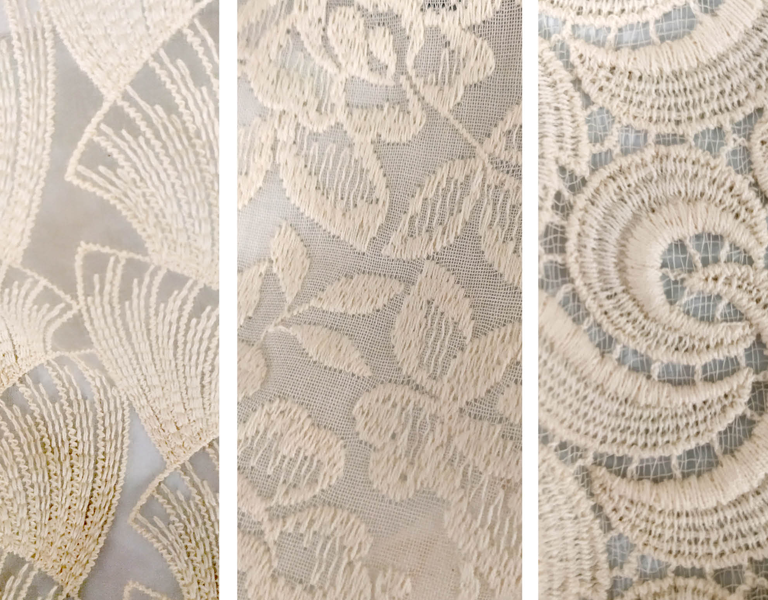
Organic cotton embroidery
Organic cotton embroidery and laces provide a sustainable dimension to traditional fancies. Art deco motifs as well as traditional floral designs were on display at this year’s expo. There were also plenty of recycled nylon and organic cotton stretch laces to choose from.
Modespitze Germany is a GOTs certified producer that specialises in high-quality embroidery and lace. Their environmental policy extends to reduction of waste water and energy consumption.
See below for details about each fabric
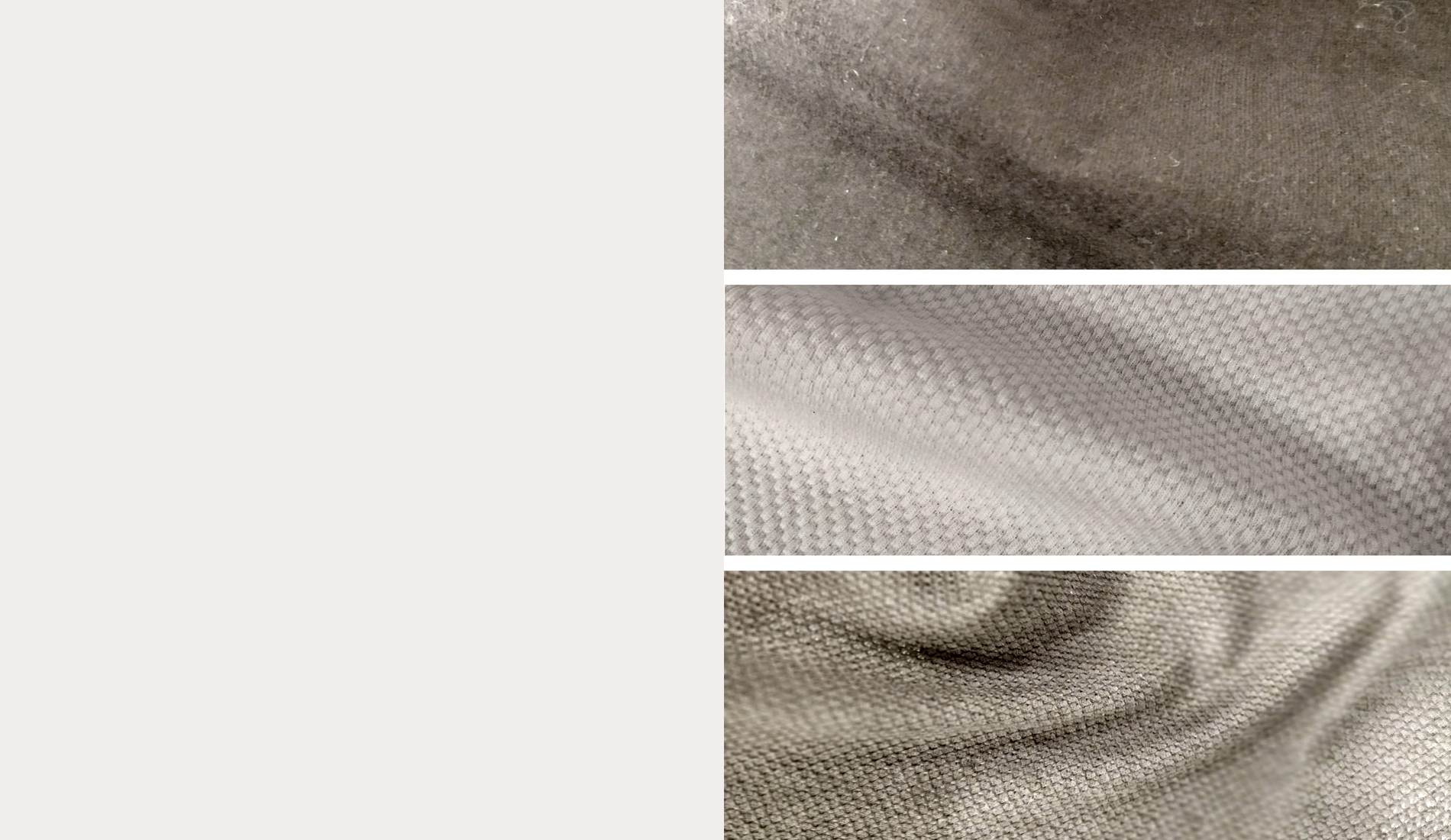
Organic cotton wovens & blends
Micro textured cotton and cotton blends were some of the beautiful woven organic cotton textiles available at the show, many with low MOQs.
Spanish producer Organic Cotton Colours has a network of 150 farmers who grow rainwater fed cotton in a biodynamic farming system that only uses animals to work the land.
90% of Lebenskeidung fabrics are GOTS certified and are sourced from Turkey, Portugal and Germany. Pastels SAS produces organic GOTS certified and GRS recycled yarns which are 100% made in France.
See below for details about each fabric
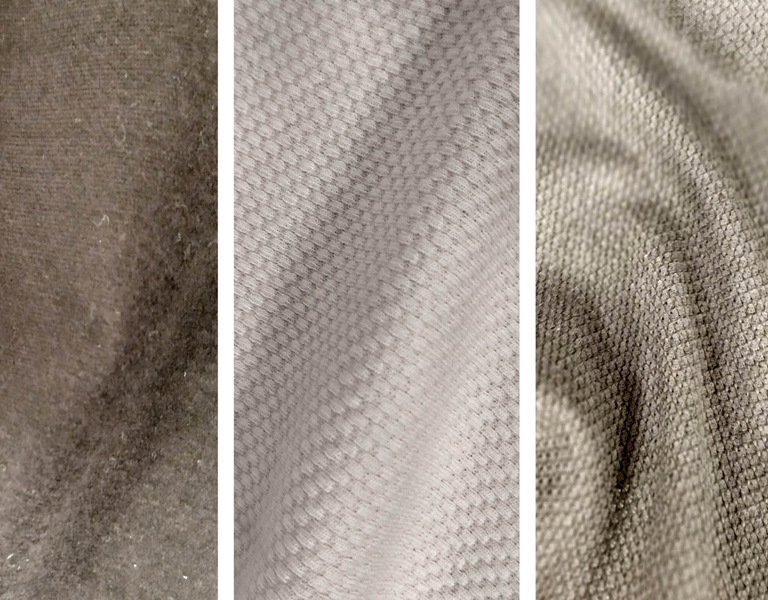
Organic cotton wovens & blends
Micro textured cotton and cotton blends were some of the beautiful woven organic cotton textiles available at the show, many with low MOQs.
Spanish producer Organic Cotton Colours has a network of 150 farmers who grow rainwater fed cotton in a biodynamic farming system that only uses animals to work the land.
90% of Lebenskeidung fabrics are GOTS certified and are sourced from Turkey, Portugal and Germany. Pastels SAS produces organic GOTS certified and GRS recycled yarns which are 100% made in France.
See below for details about each fabric
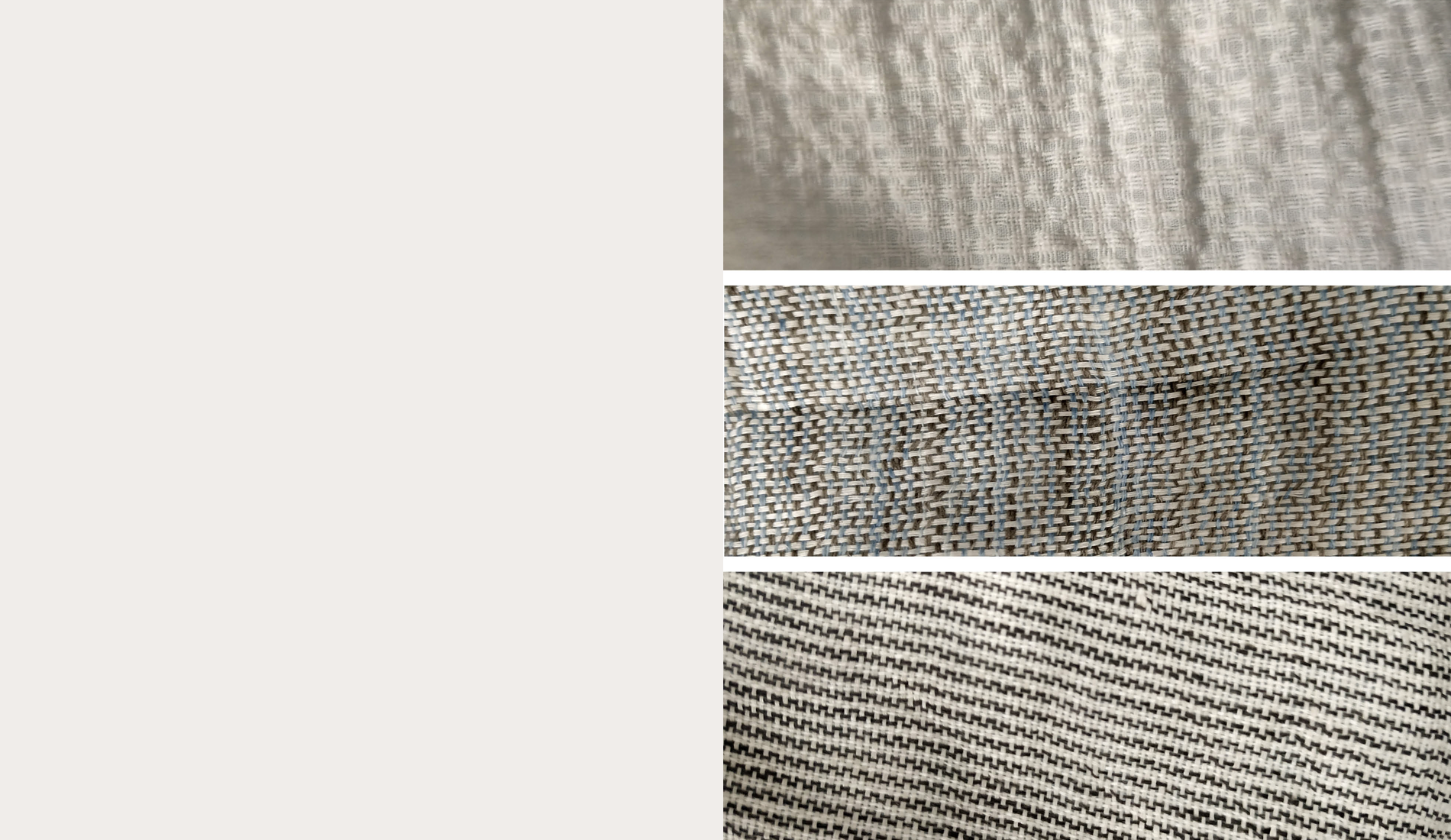
Linen & ramie wovens
Micro textures and subtle colour combinations in shirting weights updated these traditional fibres this season.
Indian co-operative Avani Kumaon ticks a number of sustainable boxes. It makes hand spun and woven fabrics in a closed loop cycle using natural dyes made from local plants, is rainwater fed and spun using solar powered spinning wheels.
Anthyia makes organic ramie using a lower impact biological rather than chemical degumming process using bast fibres sourced from China with waste water treated in a water recycling system.
See below for details about each fabric
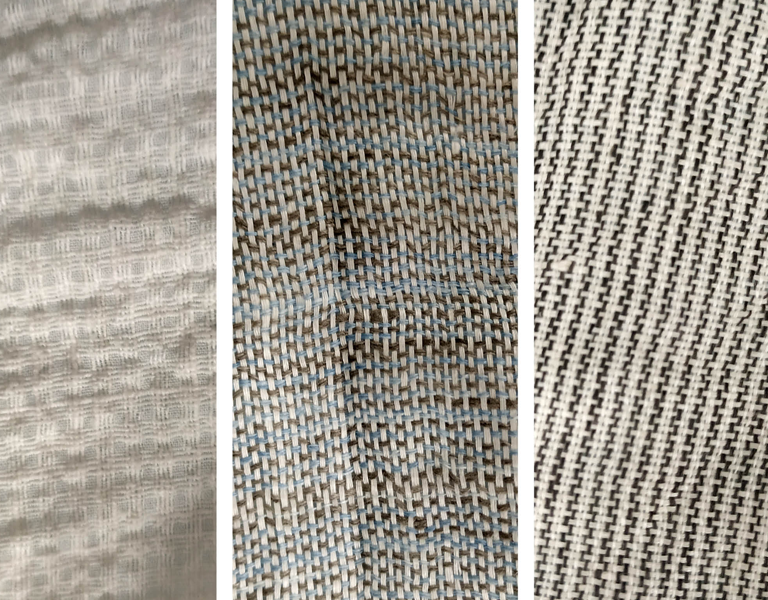
Linen & ramie wovens
Micro textures and subtle colour combinations in shirting weights updated these traditional fibres this season.
Indian co-operative Avani Kumaon ticks a number of sustainable boxes. It makes hand spun and woven fabrics in a closed loop cycle using natural dyes made from local plants, is rainwater fed and spun using solar powered spinning wheels.
Anthyia makes organic ramie using a lower impact biological rather than chemical degumming process using bast fibres sourced from China with waste water treated in a water recycling system.
See below for details about each fabric
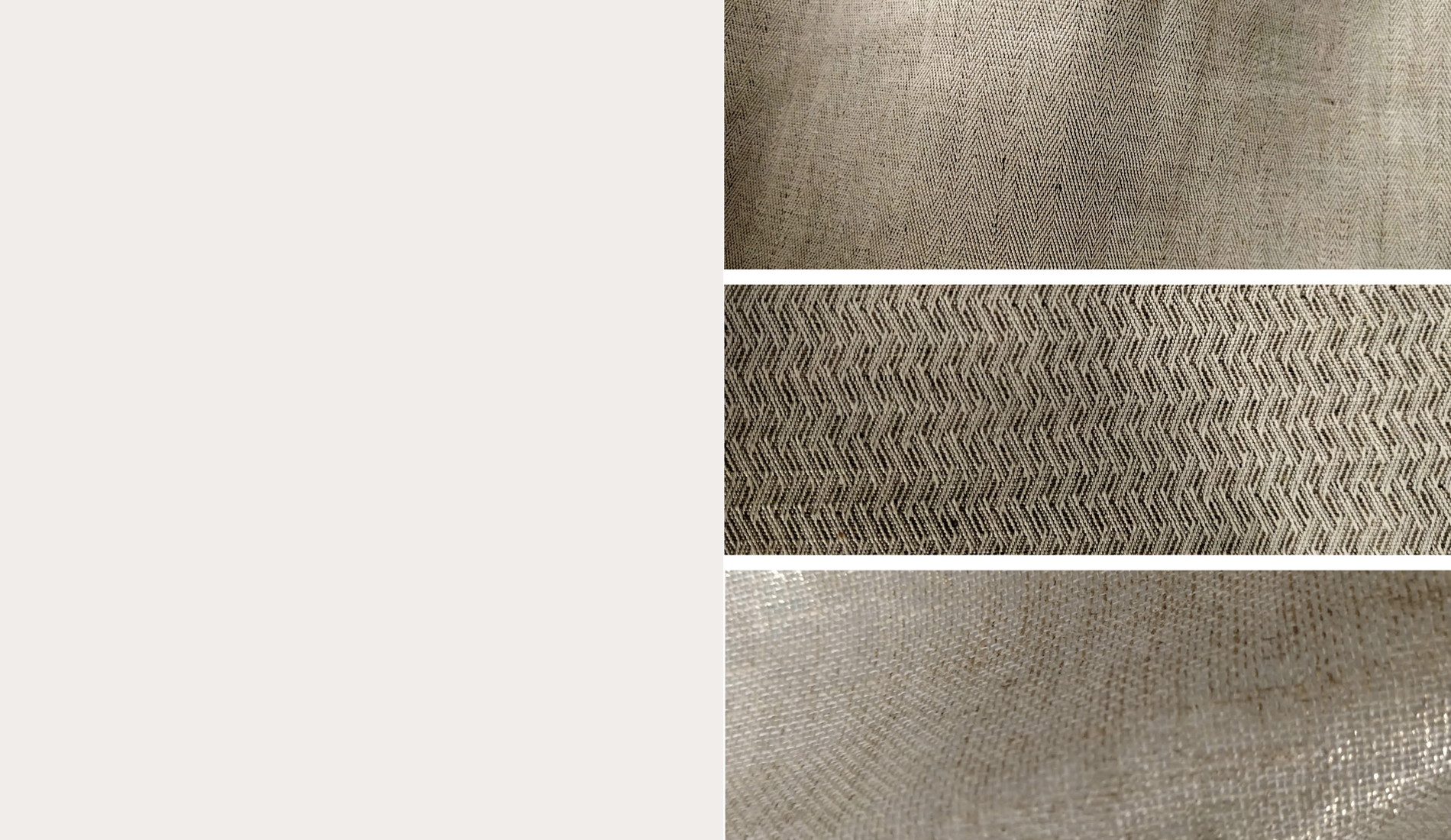
Linen & hemp blends
Hemp, is a fibre known to replenish the soil with nutrients, helping to promote biodiversity as well as being low impact.
UK producer Bysshe Partnership uses EU (UK and Romanian) sourced low impact hemp blended with GOTS certified organic cotton and are woven and finished in England to produce beautiful textured mid-weight fabrics.
Libeco Lagae, a Belgium producer, create linen fabrics also using 100% European flax which is dew-retted (rotted) in the field rather than using water intensive processing.
See below for details about each fabric
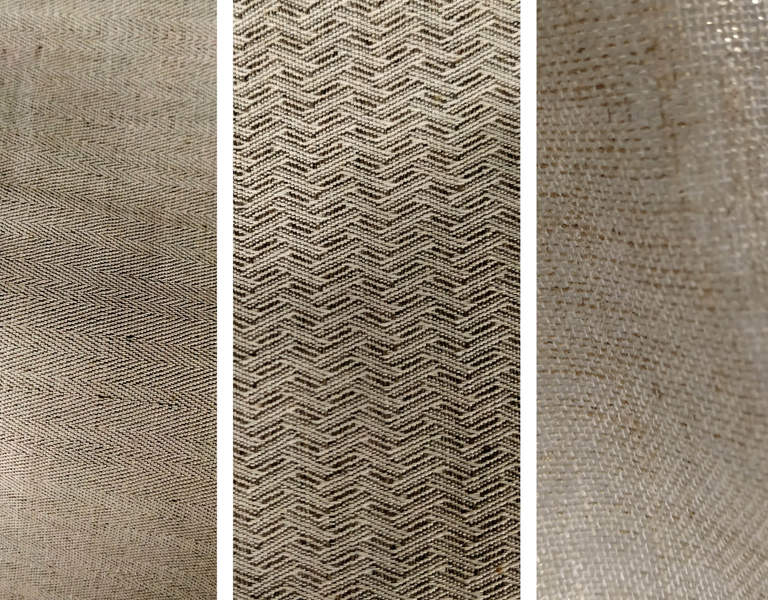
Linen & hemp blends
Hemp, is a fibre known to replenish the soil with nutrients, helping to promote biodiversity as well as being low impact.
UK producer Bysshe Partnership uses EU (UK and Romanian) sourced low impact hemp blended with GOTS certified organic cotton and are woven and finished in England to produce beautiful textured mid-weight fabrics.
Libeco Lagae, a Belgium producer, create linen fabrics also using 100% European flax which is dew-retted (rotted) in the field rather than using water intensive processing.
See below for details about each fabric
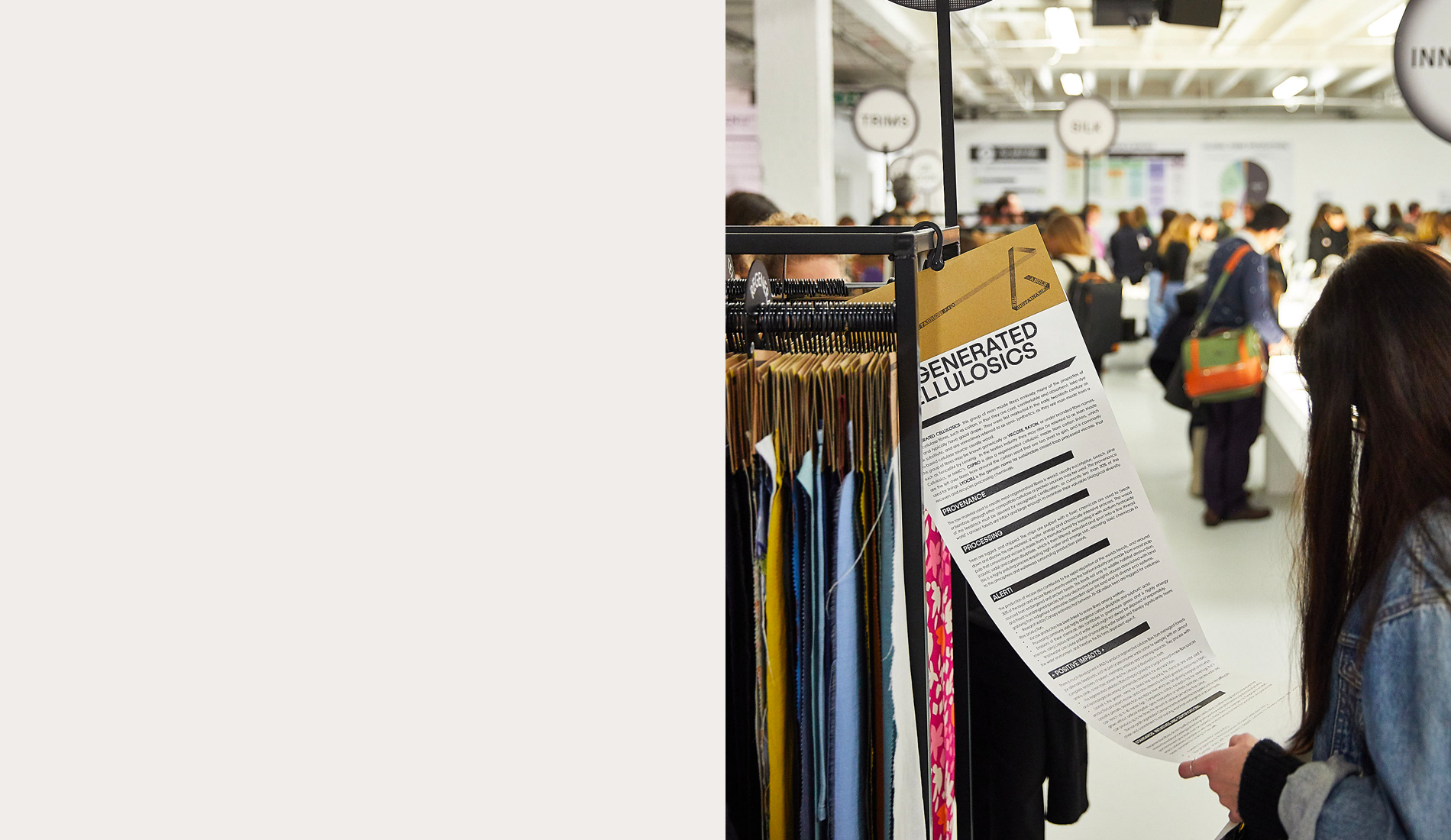
Find out more
Learn more about Sustainable Angle and their services at thesustainableangle.org.
And access their recently relaunched Virtual Future Fabrics Expo online to discover more than 900 materials and contact suppliers directly.
Image: Sustainable Angle
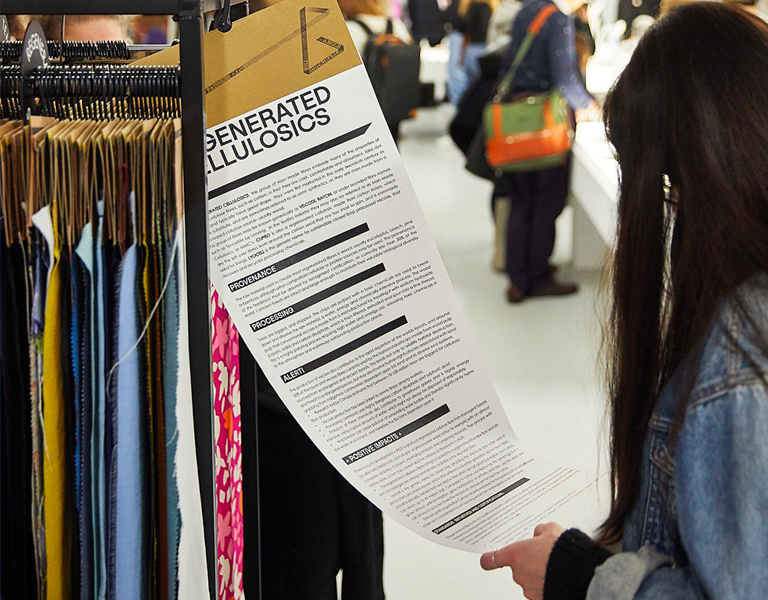
Find out more
Learn more about Sustainable Angle and their services at thesustainableangle.org.
And access their recently relaunched Virtual Future Fabrics Expo online to discover more than 900 materials and contact suppliers directly.
Image: Sustainable Angle
Related Reading
Sign up to connect with 50,000+ other sustainability-minded professionals and access over 300 pieces of actionable intelligence.
Common Objective is a global sourcing and information network that enables you to succeed in sustainable fashion business.
